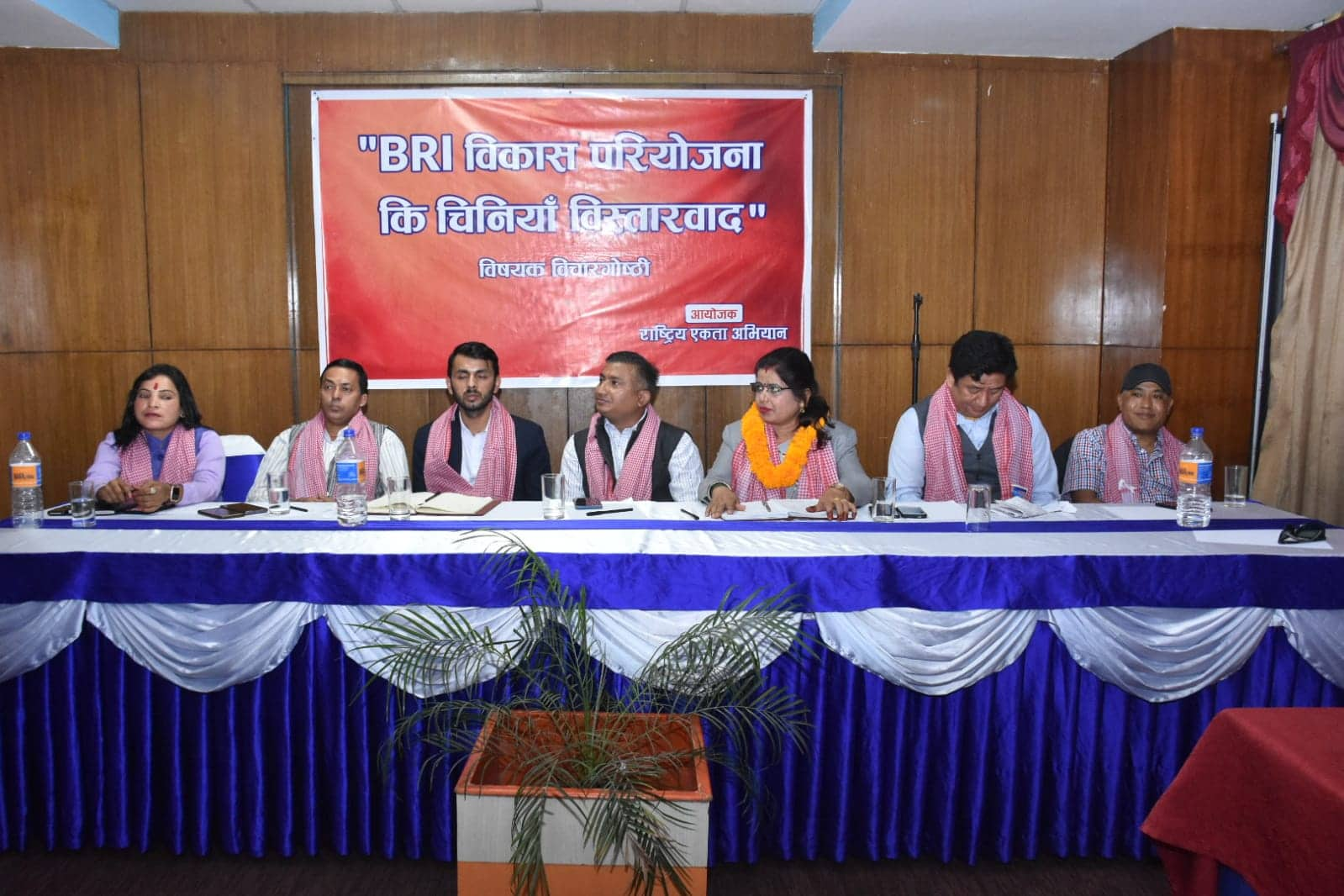KATHMANDU: The civil society in Nepal has raised a voice calling for scrapping the Chinese development project Belt and Road Initiative (BRI).
Sharing her views at an interaction titled “BRI: A development project or Chinese expansionism” organized by Rastriya Ekata Abhiyan, Chief guest Renu Devi, who is a member of the Madhesi Commission, emphasized on the need to stop Chinese expansionism in Nepal.
She said, “The BRI project should be cancelled in order to stop Chinese expansionism in Nepal. We should learn from the sufferings of other countries due to Chinese debt. Therefore, the BRI project should be cancelled.”
Similarly, Chairman of Rastriya Ekata Abhiyan Vinay Yadav, who presided over the interaction, said that if the BRI project is not axed, Chinese expansionism would be rooted in Nepal. He said, “China is planning to drown Nepal in debt in the name of BRI.”
He said that some of the points of the agreement are very vague and create an impression of having multiple meanings. He added some of the points are unclear and some of the points are anti-national, as reported by different media.
Central Vice Chair Sunita Sah, central member Chandra Yadav, Rajesh Yadav Hindu Samrat, advocate Kiran Paudel, Janata Samajbadi Party Madhesh Pradesh in-charge Kamal Yadav and Nepal Samajbadi Party central member Binod Gurung, among others, laid emphasis on scrapping the anti-national BRI agreement.
The Belt and Road Initiative (BRI) is an ambitious development strategy introduced by the Chinese government. Chinese President Xi Jinping proposed the construction of a ‘Silk Road Economic Belt’ during a speech at Nazarbayev University in Kazakhstan in September 2013.
A month later, during his visit to Indonesia, President Xi proposed the construction of the ‘Twenty-First Century Maritime Silk Road’. Later these two were combined and presented as ‘One Belt One Road’ in the plan of the Chinese State Council. Now it is called ‘Belt and Road Initiative’.
As mentioned in BRI, ‘Road’ refers to sea route while ‘Belt’ refers to land route. The belt connects the western part of China with Central Asia, Russia, Europe, the Mediterranean Sea, the Arabian Sea, Southeast Asia, South Asia and the Indian Ocean. Similarly, the ‘Road’ connects China with Europe and Africa by sea.
The BRI project covers 65 countries, 4.4 billion people and one-third of the world’s GDP.
BRI project is much larger than the scale of Marshall Plan, which was created by the US to rebuild Europe after the Second World War.
So far, about one trillion dollars of investment has been secured for hundreds of projects that are part of BRI.
A vast network of railways and roads that were unimaginable in the near past are being built across the world under BRI.
Chinese entities such as China Development Bank, Export-Import Bank, Silk Road Fund, Asian Infrastructure Bank are major investors of BRI. So far, about five dozen Chinese companies have invested in about 1,800 BRI projects. In most of the projects, China has made bilateral agreements with the respective countries where the projects are located.
The BRI has generated both excitement and apprehension in the world. It is said that some small countries are at risk of falling into debt trap.
Western nations have become suspicious of China, considering it as a plan to displace Western powers and the global and regional order led by them until now. However, they have not dared to reject Chinese investment.









Comment